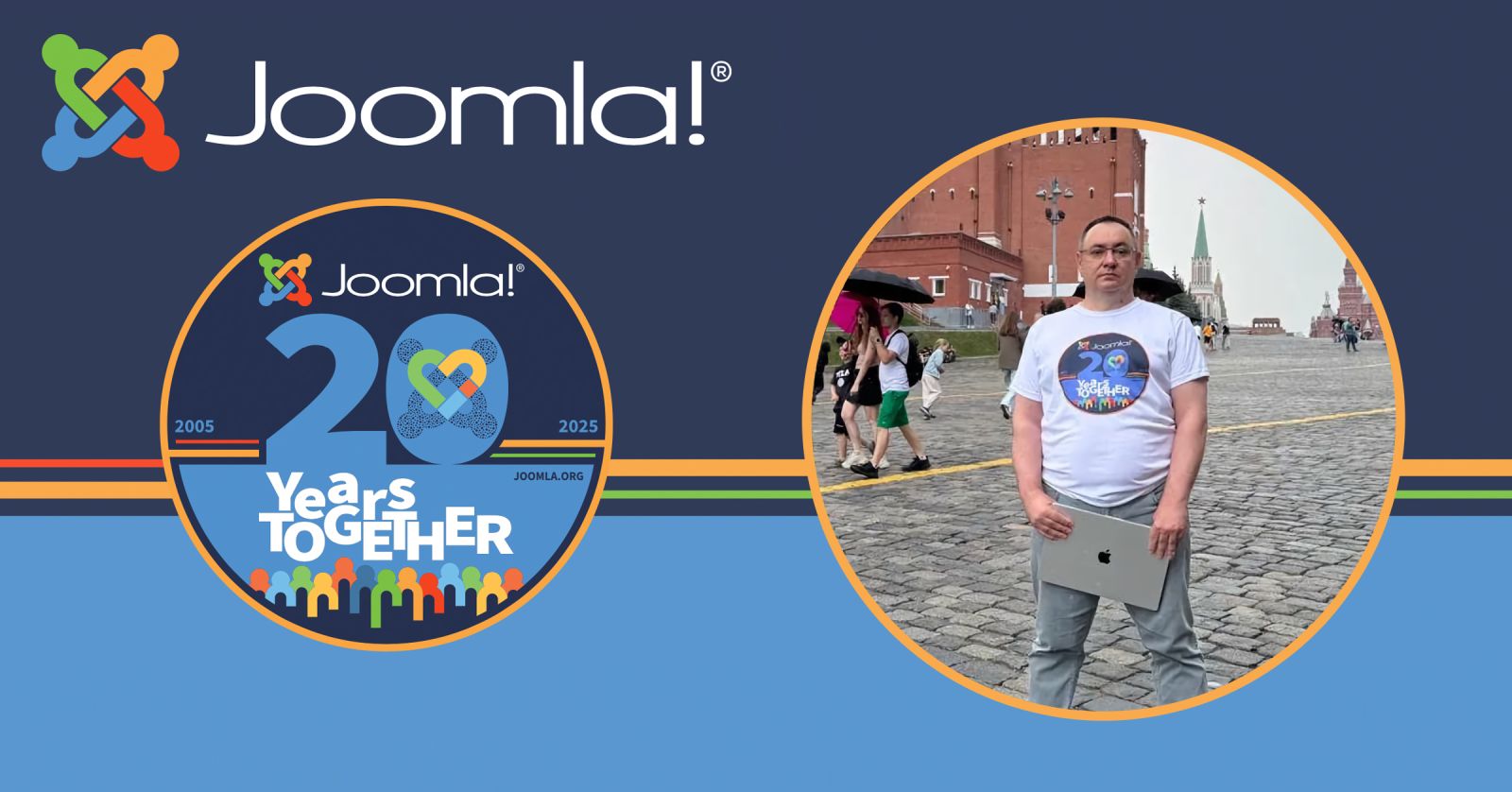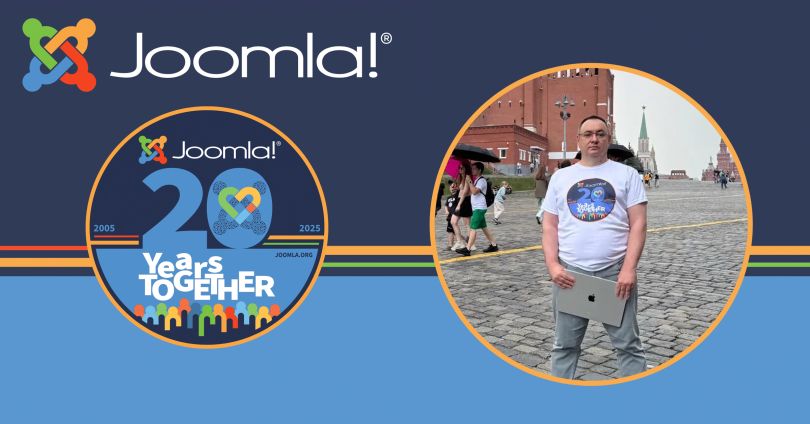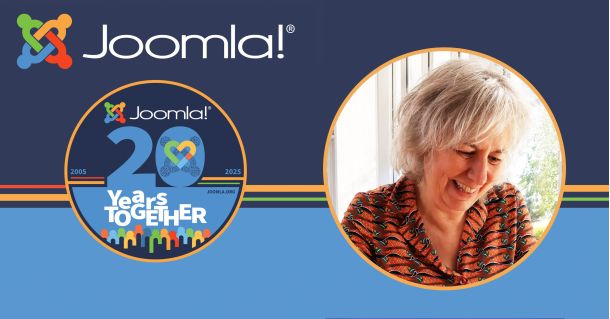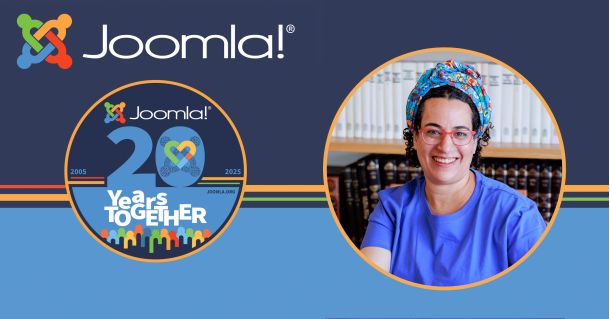
Joomla in Faces. Vladimir Eliseev (developer)

- Published: 17 September 2025
- Last modified: 14 December 2025


Today we're talking with Vladimir Eliseev from Russia, a Joomla developer and IT-evangelist. He has had a hand in developing many third-party extensions, is the head of the RadicalMart ecommerce solution for Joomla, and is the author of the RISH panel for running sites on your own server. We hope you enjoy reading the conversation.
1. Business and websites
When you tell people that you develop websites on Joomla, many respond with something like: "Oh... that's so ancient. Websites aren't even relevant anymore."
But for me, websites are more relevant than ever, and Joomla remains a reliable tool — just as fresh and in-demand as it was 20 years ago when it first appeared. I feel this every day in my work. My name is Vladimir Eliseev (aka Progreccor).
I am a Joomla website developer, the head of the "RadicalMart" (formerly "Delovoy Dizain"), the creator of the Radical Form extension for Joomla, and the RISH project — an optimized, simple, and free server control panel suitable for Joomla and other CMS. Additionally, I've had a hand in developing many other extensions and have overseen their creation. But since I don’t like to boast, let’s skip the details and get straight to the point.
2. The target auditory who needs a website
No matter how many social networks emerge or how the internet evolves, businesses and personal brands always need a solid foundation — a control center that fully belongs to them, where all data threads converge. That center is your own website. And today, Joomla is the ideal tool for creating it. Why? Let’s break it down.
Some claim that interest in websites is fading and that Joomla’s popularity is declining. This is a myth based on a superficial view. The internet is indeed changing, and we must accept that as a given. In the early 2000s, when the internet was just becoming part of everyday life, people created websites as home pages (or, as they jokingly called them, "hamsters")—simply to share news, photos, or stories about themselves and their cats. Social networks were just gaining traction back then and seemed like a fun pastime rather than a serious tool. If you wanted to talk about a hobby, family, or pet, the reflex was instant: "You’re born—time to create a website!". On this wave of enthusiasm, Joomla and other CMS platforms flourished, attracting millions of users.
But over time, the interest "receded," and we saw what is called a "decline" in popularity. I put that word in quotes because it was artificially inflated. Those who didn’t really need websites left: why spend time on a personal site when you can post videos of your cat’s walks on Instagram or in a VK.com / Facebook group?
3. The solution we offer
However, for real businesses, it’s a different story. Imagine: you create online courses on training house cats to walk outdoors and want to sell them. Where do you host the content, manage payments, collect email subscriptions, and analyze traffic? Social networks are limited here: algorithms change, accounts can be blocked, and the data isn’t fully yours. The best option is your own website on Joomla, integrated with specialized sales tools.
This is exactly the kind of solution the company "RadicalMart" is developing. Many websites are already successfully using it, though the solution is still in beta (those interested can write to the Telegram chat). This isn’t just an extension — it’s a full-fledged tool that turns Joomla into a modern platform for online commerce, competing with Shopify or WooCommerce, but with open-source code and no monthly fees.

4. The future of Joomla
The future of Joomla lies in remaining a modern, reliable, and dynamically evolving solution that can be applied to websites of any complexity level. The Joomla framework gives us this hope and a foundation for growth. Today, the popularity of a CMS is determined not by how easy it is to create a simple blog, but by its professionalism: Joomla must be a tool that developers can be proud to use.
It is especially encouraging that Joomla is developed openly, in the spirit of Open Source. The community combines a warm, "old-school" vibe (friendly forums, conferences like JoomlaDay! ™) with the ability to keep up with the times. For Joomla, the most important thing is not to slow down, to stay young and active.
I am confident: Joomla has a bright future, and I am tying my own future to it. Its popularity will return naturally — as businesses realize the value of independent platforms in the era of data and privacy. Here at RadicalMart, we are contributing: through new extensions, tutorial videos, courses, and community support.
If you share these interests, join our friendly Telegram chat Joomla for professionals (in Russian). There, we discuss trends, share code, and help each other grow. Let's work together to make Joomla even better!
5. What are your reflections on 20th anniversary of Joomla?
Twenty years is an impressive lifespan for any technology, but for Joomla, it's just the beginning. Over these two decades, it has proven its resilience, flexibility, and ability to meet the challenges of the times. I congratulate the Joomla community on this anniversary! Thank you to the developers, designers, testers, and all enthusiasts whose passion and professionalism have made Joomla a world-class platform.






